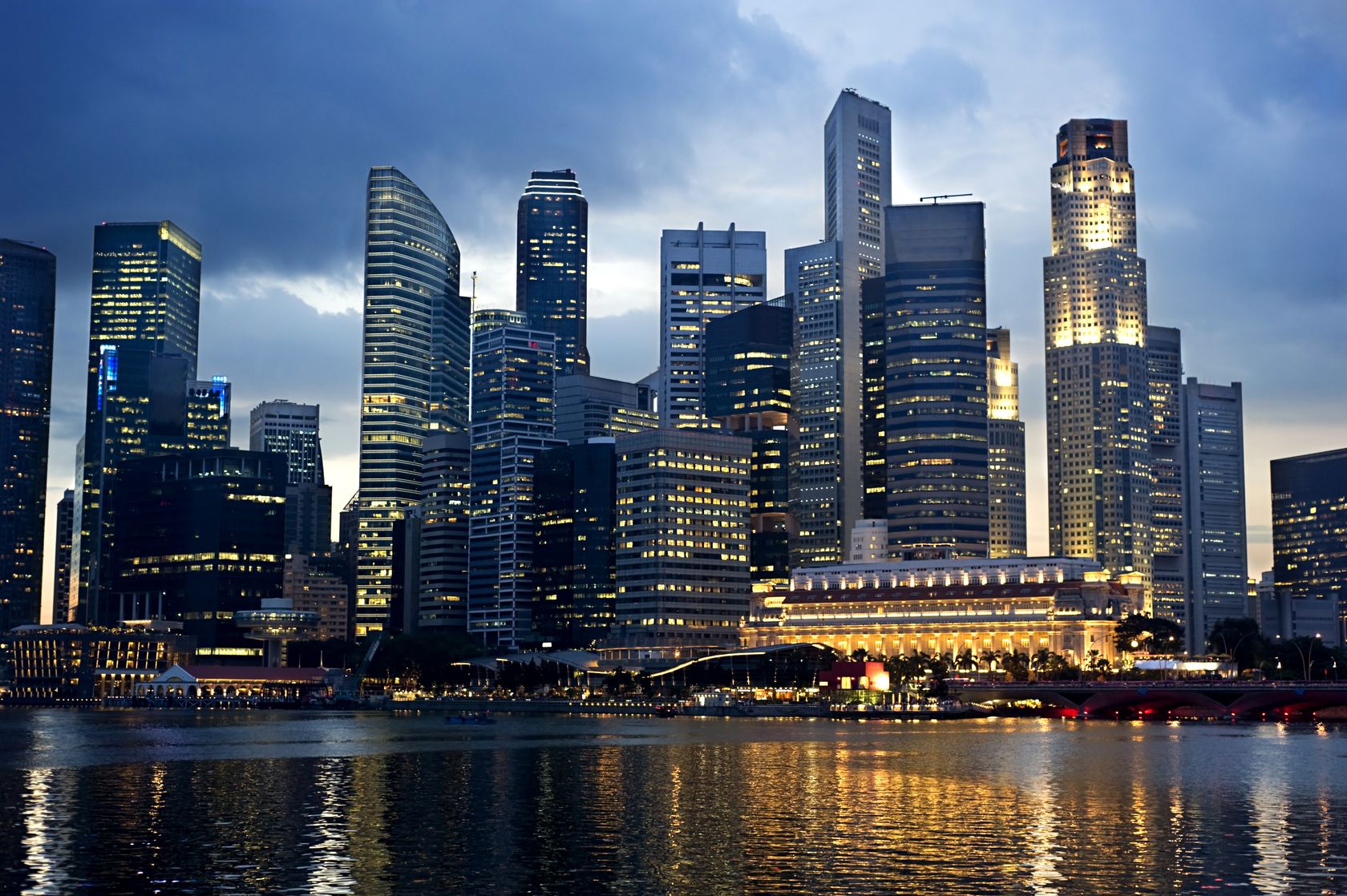Despite a slowdown in business and the various restrictions in place since the pandemic began, there has been a general rise in the number of disputes that require mediation and arbitration throughout the Asian legal communities. Lawyers are still the key players in the settling of these disputes, whether they enter into mediation, arbitration or court. Due diligence and a recognition that all three options are seen as a last resort, it’s the lawyers’ role in overseeing clients’ needs and rights, while also ensuring proper process and a fair resolution is reached. Mediation remains the preferred method and is more often than not, the first consideration presented to disputing parties, but there are still a number of alternatives in which those in disputes can be settled.
Leading figures in the Asian legal industry all agree that the pandemic has done nothing to slow down the demand for mediation, in fact it is quite the opposite.
Singapore, leading the way with 53 country signatories to the Singapore Convention, follows a similar path to its neighbours with the preferred method for resolution being mediation in conjunction with arbitration.
In fact, a recent Queen Mary University of London survey proves just how popular arbitration and mediation have become, and how the courts are now playing third and fourth fiddle, to the alternatives.

“Some clients may choose court and others may choose mediation, it is important to identify the types of clients and the potential nature of disputes before doing business together”
Shaun Leong, FCIArb, Partner at Withersworldwide in Singapore
According to the survey, Singapore and Hong Kong were among the five most popular seats for arbitration.
“Underlying many dispute resolution cases, is not just the legal side of things that are recognised, there is also reputation and face, which is very important in the Asian culture,” says Teh Joo Lin, Deputy Chief Executive Officer at the Singapore International Mediation Centre.
Mediation and arbitration are part and parcel of the Asian corporate legal framework and have long been the preferred process in which disputes have been handled. Enforcement is not the driving force, but the spirit and use of mediation as an alternative to dispute resolution.
Shaun Leong, FCIArb, Partner at Withersworldwide in Singapore says as foreign investment in ASEAN countries continues to rise, there is a ripple effect of disputes, which will also arise and so it is important for businesses to be prepared.
“Some clients may choose court and others may choose mediation, it is important to identify the types of clients and the potential nature of disputes before doing business together,” he said.

“When parties face disputes, they tend to choose a bipartisan meeting before going to arbitration or court and once it is clear that negotiation will be unsuccessful, they will commence arbitration or court litigation instead of attempting to involve a mediator,”
Melati Siregar, Senior Partner at UMBRA Strategic Legal Solutions.
In Indonesia, there has been a push to use mediation when settling disputes, despite arbitration or court still being the preferred method in settling disputes. The slow growth in and a push to encourage mediation is facing its own set of challenges, despite the process being around since the Dutch colonial days. While regulations have evolved over time, so has a slow but steady increase in mediation as a despite resolution tool.
The push to boost mediation primarily comes from the Indonesian government by requiring court-annexed mediation prior to court proceedings. However, despite this push, the number of cases that are settled through court-annexed mediation remains low at six percent.
It is a mentality that needs changing if mediation is to be better utilised, according to Melati Siregar, Senior Partner at UMBRA Strategic Legal Solutions.
“When parties face disputes, they tend to choose a bipartisan meeting before going to arbitration or court and once it is clear that negotiation will be unsuccessful, they will commence arbitration or court litigation instead of attempting to involve a mediator,” she says.
However, a number of Indonesian-centric issues emerge when it comes to disputes, one being the long-held belief that whoever initiates mediation, has the weaker case, and that once a dispute arises, parties (especially the defaulting parties) will tend to draw out and frustrate the dispute resolution process as much as possible. The legal community remains divided as to whether mediation should be mandatory or a voluntary move.

“Mediation is becoming more popular and has high potential as a means of dispute resolution in Vietnam, particularly among foreign companies, but not so much the state-owned enterprises. However, since it is a new process, it will take time to be utilized more. It was first introduced in Vietnam in 2017 and the legal community is better supported simply because of its legally binding nature”
Loc Xuan Le, Partner at Vietnam-based Tilleke & Gibbins.
Meanwhile in Vietnam where international investment and business is increasing, the trend is to avoid conflict, with cost being the driving force. As a result, mediation is the preferred option. It is a relatively new process and a legally binding one. There are a number of reasons as to why mediation is preferred, first and foremost in its truest form, mediation, is seen as a conciliation process, thus avoiding conflict.
“Mediation is becoming more popular and has high potential as a means of dispute resolution in Vietnam, particularly among foreign companies, but not so much the state-owned enterprises. However, since it is a new process, it will take time to be utilized more. It was first introduced in Vietnam in 2017 and the legal community is better supported simply because of its legally binding nature,” says Loc Xuan Le, Partner at Vietnam-based Tilleke & Gibbins.
There is some confusion in Vietnam as to whether a decision in mediation is considered a judgement or an agreement. The Vietnam Mediation Centre and the Vietnam International Arbitration Centre have made inroads in simplifying and streamlining the process with the construction industry, in particular, driving the case numbers up.

“Mediation numbers in Hong Kong and China can be misleading as most disputes that head to mediation are done so in private, but from what we can see, the courts and also the Governments have been actively promoting mediation. In Hong Kong this dates back all the way to 2009” Joseph Chu, Hong Kong based Partner at Withersworldwide.
In China and Hong Kong and despite the pandemic, the number of arbitration cases increased in 2020, in both case numbers and claim amounts, which, according to the Hong Kong International Arbitration Center, and Hong Kong were 380 cases with a total claim amount of $US8.8 billion. In China the total case numbers were 3,615 for a total claim amount of $US17.3 billion – significantly over 90% of new cases involved Asian companies. The confidentiality, flexibility and speed at which disputes can be heard is part of the appeal of arbitration as is the enforceability of the disputes under the New York Convention. The use of mediation and figures in Hong Kong are not as easily accessible due to the fact that they are conducted privately. In both Chinese and Hong Kong jurisdictions the courts actively encourage mediation as a first call, the Hong Kong Government, has been doing this as far back as 2009.
“Mediation numbers in Hong Kong and China can be misleading as most disputes that head to mediation are done so in private, but from what we can see, the courts and also the Governments have been actively promoting mediation. In Hong Kong this dates back all the way to 2009,” says Joseph Chu, a Hong Kong based Partner at Withersworldwide.
Significantly, the Chinese Government is planning to reform its arbitration laws. In July of this year, the Chinese Government published its proposal to revamp and correct some deficiencies that had been identified and also to update its law so it can compete with other global and regional markets.
This article was written by Chris Bisogni for Conventus Law in association with Withers KhattarWong.
The views and opinions expressed in this article are those of the author and do not necessarily reflect the opinions, position or policy of Withers KhattarWong or its other employees and affiliates.

For further information, please contact:
Shaun Leong, FCIArb, Singapore based Partner, Withersworldwide
shaun.leong@withersworldwide.com
Joseph Chu, Hong Kong based Partner, Withersworldwide


